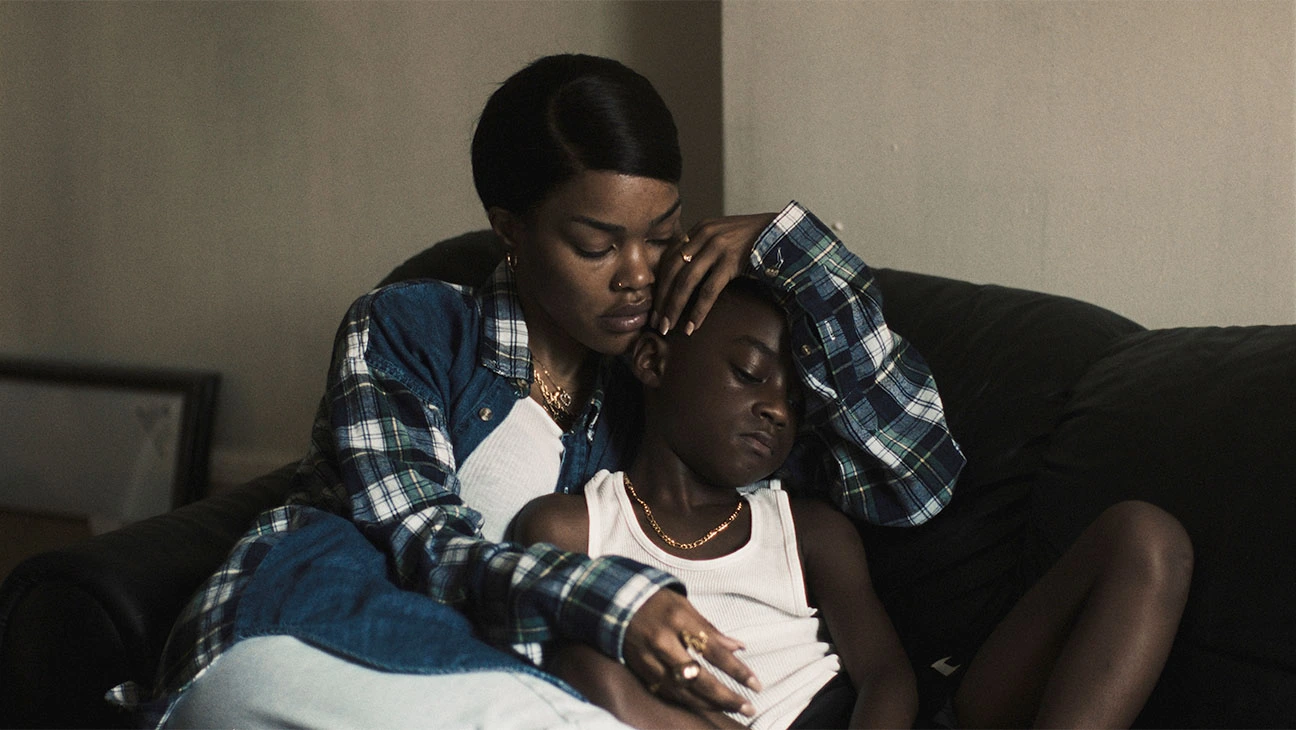A mother and son forge a life in Harlem amidst an ever-changing city in the gritty, moving Sundance Grand Jury Prize winner A Thousand and One, a movie about strugglers, strivers, hard won family love and the spoils of urban gentrification.
It is also a movie about a sensational performance, that of musician and actress Teyana Taylor, who dominates the film as a Rikers parolee determined to rebuild her relationship with her young son after losing him upon incarceration. Over the course of the picture, which spans a decade a half, Taylor’s striking, lived-in portrait of maternal fortitude evolves from hand-to-mouth, young adult bravado to wistful maturity in the face of cruel fate.
Directed by Queens native and NYU alum A.V. Rockwell with incisive perception for the shifting dynamics of her home city, A Thousand and One is an urgent meditation on the sometimes difficult love between a beleaguered parent and child and the harsh urban realities forcing long-time residents to the outer margins. It is an evocative, often piercing and never less than fully felt consideration of home, perpetually shifting beneath its characters feet.
Picture opens in the early 90s as sparkling, spunky Inez (Taylor), released from a short prison stint, lands back in her Harlem home milieu (beautifully rendered in spirited period patina by cinematographer Eric Yue). A cocky, talented hairstylist, hustling Inez quickly happens upon young son Terry (Aaron Kingsley Adetola), residing in foster care.

“Why do you keep leaving me?” cautious Terry wonders, and after comforting the boy in a hospital ER, Inez takes matters into her own hands, promptly and illegitimately moving him across town, changing his name and, calling everyone she knows, struggling to find work and put a roof over their heads.
Rockwell doesn’t question Inez’s decision to take flight with her child, instead focusing on their close to the ground survival and their growing, sometimes thorny dynamic. The ever present unease of news stories on Terry’s disappearance is a constant stressor. Will they be found out? Will someone report them?
After the pair relocates back to Harlem, Inez’s former boyfriend Lucky (a warm Will Catlett) moves in, eventually becoming Terrys’ surrogate father. The three live in deep cover for Terry, who goes by the covert name of Darrell, which allows him to go to school and live without being discovered.
Yet when academically accomplished Terry moves closer toward high school graduation and his own collegiate future at a good university, identity complications re-emerge. This part of the picture reminded me of Sidney Lumet’s 1988 radicals-on-the-run drama Running on Empty, a musically gifted River Phoenix caught be tween the sins of the Boomer fathers and his own promising future.
Over this sprawling saga, Terry is played by three actors—Adetola, Aven Courtney and Josiah Cross—in a sectional triptych that might recall 2016’s Oscar-wining Moonlight. All three actors are superb with Cross the standout in the film’s climactic confrontation between past and present, emotionally true in his depiction of Terry’s need to know his heritage and plan for his future.

That home, an increasingly dilapidated Harlem walk-up, is torn asunder by gentrification as white building owners move in promising “repairs” but instead intentionally make apartments far worse for wear, forcing Inez and Terry from their longtime home.
The city itself is an integral character, driving radical change in ways that may once again separate mother and son. Rockwell is very clear in her indictment of a New York City in the throes of transition under Giuliani and Bloomberg, whose voices are heard on news reports and whose policies manifest in aggressive urban policing as well as city planning that will ultimately displace lower-income residents.
The picture isn’t perfect, feeling a tad too elliptical and episodic in its passages of time and life. And a dramatic last act revelation, which provides an effective, bracingly acted exchange between mother and son, forces a re-evaluation of exactly what (and who) we think we know, setting the final moments slightly off axis.
Throughout, Taylor’s gorgeously wrought portrait of a flawed, limited opportunity person who valiantly struggles to get a meager leg up for her family (and who does not always make the right decisions), and who also has her own challenging needs, is without peer in American movies this year.
A Thousand and One is a tribute to the marginalized, heads down, eking out lives underground, including the invisible children of the world whose hazy histories (I was sometimes reminded here of undocumented city kids unaware of such status until young adulthood intervenes) may elude them until they can no longer be obscured. Most of all, the film is a paen to urban single mothers—hardworking at multiple jobs, getting food on the table and maintaining the day-in-and-out of an unforgiving metropolis that always takes far more than it gives.
3 1/2 stars




Lee, I saw the movie last night on your recommendation at the Fortnightly film group.
The sound at the Century Theatre was poor and also my hearing could be better. Between the sound and the dialect my friend and I had a hard time following the movie. After looking it up online and reading your review did I totally comprehend the movie. Another positive for streaming. Closed captions.
See you at the movies!
Hi Brenda- Great to hear from you! That is unfortunate about the sound at Landmark Century. I am very careful these days about selecting venues based on the best projection and sound. Maybe we can talk about this next time we are together as a group. I am glad you saw this and thrilled it was on my recommendation. See you at the movies, and soon I hope!
Good movie…thinking on a part 2….